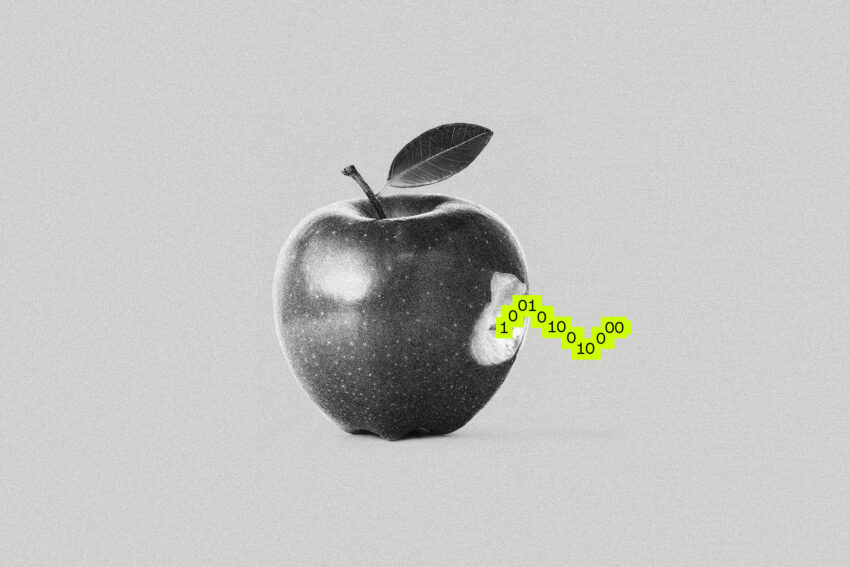
how ai is fueling an existential crisis Generative AI is reshaping the educational landscape, prompting deep philosophical questions about the purpose and integrity of learning.
how ai is fueling an existential crisis
The Rise of Generative AI in Education
In recent years, generative AI technologies, particularly tools like ChatGPT, have gained significant traction in educational settings. These advancements have sparked a myriad of discussions about their implications, especially concerning academic integrity. Many educators and stakeholders express concern over students potentially using AI to cheat on assignments. Indeed, reports indicate that a considerable number of students have turned to these tools for assistance in their schoolwork.
Cheating Concerns
According to various studies, a substantial percentage of high school students have admitted to utilizing generative AI for their assignments. For instance, a report from the College Board reveals that a majority of high school students have engaged with generative AI in some capacity for their schoolwork. Similarly, a Pew Research survey indicates that about one-quarter of teens have used ChatGPT specifically for academic purposes. These statistics underscore the growing reliance on AI tools among students, raising alarms among educators about the erosion of traditional learning methods.
Philosophical Implications
While the immediate concern revolves around cheating, the implications of generative AI in education extend far beyond this issue. The Decoder team engaged with numerous educators to explore the broader philosophical questions that arise in the context of AI integration into learning environments. A recurring theme emerged from these discussions: educators are grappling with the fundamental question of purpose. As one instructional designer articulated, “If this technology becomes more ubiquitous, we’ll have courses created by AI, graded by AI, with submissions from students absolutely generated by AI. So it begs the question: What are we even doing here in higher ed?”
The Existential Crisis
This existential crisis is not limited to a single perspective; rather, it permeates various levels of education. Teachers are experiencing a spectrum of reactions to AI in the classroom. Some educators find that AI tools like ChatGPT can enhance their workflow, providing support in lesson planning and grading. However, a significant majority express discomfort with the implications of AI-generated content on the educational experience. The fear is that as AI becomes more integrated into the educational process, the essence of learning may be compromised.
Voices from the Classroom
To gain deeper insights into the experiences of educators, the Decoder team spoke with several teachers from diverse backgrounds. Their narratives reveal a complex landscape where the integration of AI is met with both enthusiasm and trepidation. For some, AI tools are seen as a means to streamline administrative tasks, allowing them to focus more on personalized instruction. However, others voice concerns that these technologies may inadvertently promote a culture of dependency among students.
Positive Perspectives
Some educators have embraced generative AI as a valuable resource. They argue that when used responsibly, AI can serve as a supplementary tool that enhances the learning experience. For instance, teachers report that AI can assist in generating diverse learning materials, catering to various learning styles. This adaptability can be particularly beneficial in classrooms with students who have different needs and abilities.
Negative Perspectives
Conversely, many educators express skepticism about the long-term effects of AI on student learning. They worry that reliance on AI-generated content may diminish critical thinking skills and creativity. One teacher noted, “If students can simply ask an AI to generate an essay for them, where does that leave their ability to think critically and articulate their ideas?” This sentiment reflects a broader concern that the convenience offered by AI tools could lead to a decline in academic rigor.
Expert Insights
To further explore the implications of generative AI in education, the Decoder team consulted Dr. Adam Dubé, an expert in educational technology from McGill University. Dr. Dubé emphasized the need for a nuanced understanding of how AI fits into the educational framework. He pointed out that while generative AI presents challenges, it also offers opportunities for innovation in teaching and learning.
Research and Adaptation
Dr. Dubé’s research highlights the importance of adapting educational practices to incorporate AI in meaningful ways. He advocates for a balanced approach that leverages the strengths of AI while addressing its potential pitfalls. For example, he suggests that educators should focus on teaching students how to critically evaluate AI-generated content, fostering skills that will be essential in an increasingly AI-driven world.
Future Considerations
Looking ahead, Dr. Dubé envisions a future where AI is seamlessly integrated into educational systems, but with careful consideration of its implications. He argues that educators must engage in ongoing discussions about the role of AI in learning, ensuring that it complements rather than replaces traditional pedagogical methods. This dialogue is crucial for developing a framework that prioritizes student learning and integrity in the face of technological advancements.
Stakeholder Reactions
The conversation surrounding AI in education is not limited to educators and researchers; it encompasses a wide range of stakeholders, including parents, policymakers, and technology developers. Each group brings its own perspective to the table, contributing to a multifaceted debate about the future of education in the age of AI.
Parental Concerns
Parents are increasingly aware of the role AI plays in their children’s education. Many express concern about the potential for cheating and the impact on their children’s learning experiences. Some parents advocate for stricter regulations on the use of AI tools in schools, fearing that unchecked access could hinder their children’s academic development.
Policy Implications
Policymakers are also grappling with the implications of generative AI in education. As schools begin to adopt these technologies, there is a pressing need for guidelines and regulations that address issues of academic integrity and equitable access to resources. Policymakers must consider how to balance innovation with the preservation of educational values, ensuring that all students benefit from advancements in technology.
Technology Developers
Technology developers play a crucial role in shaping the future of AI in education. As they create tools designed to assist students and educators, they must also consider the ethical implications of their products. Developers are increasingly called upon to design AI systems that promote learning rather than undermine it, fostering a culture of responsibility and integrity in educational settings.
Conclusion
The integration of generative AI into education presents both challenges and opportunities. While concerns about cheating and academic integrity are valid, the broader implications of AI on the philosophy of education cannot be overlooked. As educators, researchers, and stakeholders navigate this evolving landscape, it is essential to engage in thoughtful discussions about the role of AI in learning. By prioritizing critical thinking, creativity, and ethical considerations, the educational community can harness the potential of AI while preserving the core values of education.
Source: Original report
Was this helpful?
Last Modified: November 6, 2025 at 9:41 pm
3 views















